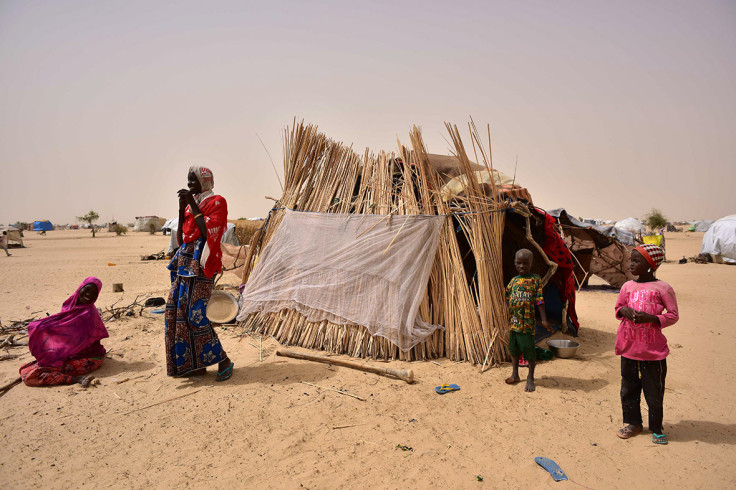Suspected Boko Haram attack kills eight outside church in Borno state
Latest attack carried out as joint offensive against Isis-affiliated terrorists continues.
At least eight people have been killed outside a church in north-eastern Nigeria in an attack carried out by suspected members of Boko Haram terror group. Gunmen on bicycles attacked worshippers who had attended the morning service at the church in the Kwamjilari village, in the restive Borno state.
"Unknown to the residents, the gunmen had stationed some of their comrades on the road leading out of the village and they shot anyone who tried to flee," a survivor was quoted by the Vanguard newspaper as saying. "Many people ran into the bush with gunshot wounds. But so far we can only confirm eight deatth."
Witnesses added the attackers also set on fire houses and fields of maize that were almost ready for harvest.
Borno is the epicentre of Boko Haram's insurgency, which has resulted in the death of at least 20,000 people since 2009. Kwamjilari is close to the Chibok village, where more than 200 girls were kidnapped by Boko Haram in 2014.
Although the Chibok abduction was not the first mass-kidnapping carried out by the terrorists, it was the only one that attracted international outrage. It led to the creation of the global movement Bring Back Our Girls which shone a spotlight on the deadly insurgency of Boko Haram that had previously been under-reported.
Who are Nigeria's Boko Haram terrorists?
Boko Haram, which has renamed itself Iswap, fights against Western influence in Nigeria and aims to impose its version of Sharia law throughout occupied territories.
The group launches attacks in Nigeria and neighbouring countries in a bid to take control of more territory. Three Nigerian states – Adamawa, Borno and Yobe − have been under a state of emergency since May 2013.
Boko Haram was deemed the world's deadliest terror group, surpassing Islamic State in November 2015. Nigeria has also become the world's third most terrorised country as a result of the group's violent insurgency.
Nigeria is spearheading an ongoing regional offensive against Boko Haram. The task force consists of 8,700 troops from Nigeria, Niger, Chad, Cameroon and Benin.
The joint offensive has scored some success, such as the recapture of several territories and the release of thousands of civilians previously held captive.
The Nigerian army and government have often claimed the fight against Boko Haram was over. Nigeria's President Muhammadu Buhari declared a technical victory over the insurgents in December 2015.
However, Boko Haram still carries out attacks, with security experts warning that underlying issues such as disenfranchisement, poverty and strong links with the Islamic State (Isis) will continue to pose major threats to stability in the region.
In August, the Nigerian army's claim it had "fatally injured" Abubakar Shekau, the contested leader of Boko Haram.

© Copyright IBTimes 2025. All rights reserved.






















